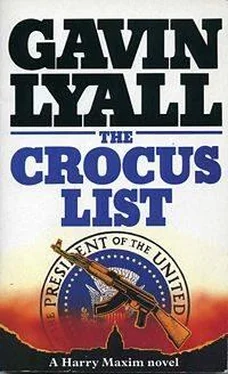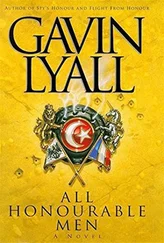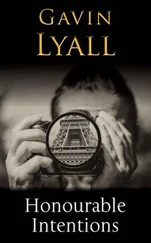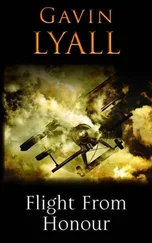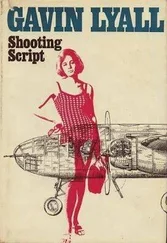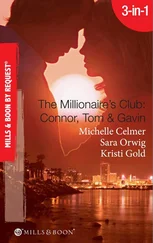What it certainly is not is impressive. Barely twelve feet high, it could be scaled in seconds by trained men or knocked flat by a tank: of course, the Russians may well have thought of that. On the Western side it is covered in aerosol graffiti and occasional plaques where people have died trying to cross from the East, but graffiti dominates. Its strength lies on the Eastern side, in the no-man's-land of minefields, watchtowers, alarm fences, ditches, automatic guns and vehicle obstacles.
Yet even these are not very impressive as you walk past them at Checkpoint Charlie; or perhaps soldiers just getblaséabout such things. Maxim noted them instinctively, at first pretending not to look, then gawping obviously, as he assumed a tourist would do. The pathway narrowed through wire fences and he found himself standing with a little group of real tourists on the wooden verandah of the long control shed, a dirty corrugated plastic roof overhead and a wire mesh gate ahead, waiting for his visa. And waiting. And waiting.
A single unarmed guard with a green-banded cap, chubby and pink-cheeked, strolled out among the cars on the widened roadway beside them, collecting and returning passports, lifting chain barriers to let a vehicle creep forward a few more yards to the next stage. From time to time he took a passport from a faceless window beyond the gate and held it up, open to show the photograph: a relieved tourist claimed it, was allowed through the gate to pay his five Deutschmarks, and vanished into the shed further along. The rest waited.
It became the timeless, mindless hospital hallway where you wait stripped of personality, because the real you is a clutch of paperwork being leisurely diagnosed behind closed doors; where the best news can only be that things aren't as bad as you are sure they are. Or that you will reach East Berlin.
It was a time for fears to grow. Absurdly, he began wondering if they had his photograph-Harry Maxim's photograph-on a file in that shed. They certainly had it on file somewhere behind the Iron Curtain, had had it from soon after he started work at Number 10, and he was a hundred miles behind the Curtain already. Or they were pulling the Winterbotham passport to pieces, spotting discrepancies and flaws he would never have suspected, that even Agnes… no, he didn't want to think of Agnes. She had nothing to do with Winterbotham. /am Alan James Winterbotham, aged thirty-seven, bom in London UK, hospital administrator… But there's a photograph of Harry Maxim-It was the guard holding up his passport.
Blindly, he took it."Danke schön…"
"Five Deutschmarks."
He paid at the window, barely seeing the shadowed face beyond, walked the verandah, in through the door… There was a shelf scattered with small forms in different languages. He found an English one and filled out how much currency he was carrying, handed it to a middle-aged woman in uniform.
"Have you any books, papers?"
He half-pulled the unmarked map from his pocket; surely most tourists would carry that.
"A map." She waved him past. "You must change twenty-five marks."
He was ready for that. At the next desk he got twenty-five East German marks on a one-for-one exchange; the unofficial but real rate was four to one. And he was 'free' in East Berlin.
The first stage of the route was easy: straight ahead down the wide Friedrichstrasse. Even after the deliberate desolation behind the Wall, the street took time to revive, with buildings perhaps eight storeys high standing among empty plots; one of the buildings itself was derelict. The wind blew a fine dust out of the emptiness, bringing a weird reminder of Washington… /am Alan James Winterbotham…
At the broad Unter den Linden the new buildings began, stretching out in either direction. He waited for a green light; the traffic was far thinner than in the West, the cars smaller: Skodasand Ladas, many old and asthmatic, with dulled paintwork. The crowd thickened on the far side, as he neared the Friedrichstrassestation; there were a lot of uniforms-all East German: the overt Russian presence in Berlin is very small-with the officers all carrying briefcases that were as much a badge of rank as their epaulets.
He found thecaféeasily, just past the three-level station complex and the Metropole Theatre. It was small and genteelly modern, with waitresses in white-frilled black uniforms weaving among tiny plastic-topped tables. He drank a coffee, black, and it tasted much as any coffee did, but he was no connoisseur; had the time-warp of the Wall made him expect something made from toasted acorns?
"Noch eins Kaffee, bitte."He could speak more fluent German than that, but Alan James Winterbotham couldn't. Most of the other customers were middle-aged ladies, seemingly well-dressed-he was no connoisseur there, either-chatting over an after-lunch coffee with perhaps a liqueur on the side. It was just… well, genteel.
When the coffee came, he stood up and looked around for the… er… The waitress pointed the way, past therack of coats. He thanked her and moved off. Now he would find whether Sergeant Gower's visit had sparked any official interest. And if the middle-aged ladies suddenly turned into Volkspolizeiagents and leapt on him as he lifted the plastic-wrapped pistol from the lavatory cistern, they would find out how Harry Maxim reacted. Not Alan James Winterbotham.
With a pistol nearly nine inches long and weighing over two pounds jammed uncomfortably in his waistband (but thank God it was November and the weather for hiu thick car-coat) it was difficult to feel much like Alan James Winterbotham. In fact, it was pointless, since no passport could explain that away. In a Marxist state private property has to be tolerated, but a private weapon is a denial of the state itself.
But _they_ don't know, he told himself, trying to lighten his step.
It was nearly four miles through the streets to Pankow, so he walked back towards the station, looking for the green Ladataxi. It wasn't there, so he stood consulting the Berlin map-the agreed signal-until it cruised past, stopped and reversed: just a hungry taxi-driver looking for a tourist with West Deutschmarks.
"Bist du Erich?"
"Ja. Herein."
He sat carefully on the uneven springs of the back seat."Nach dem Pankow S-Bahnof, bitte."
The Ladajerked away, and after they had gone a couple of blocks Erich held his hand over his shoulder with a snap of his fingers. Maxim dealt him two hundred West Deutschmarks, as agreed.
Erich wasn't entirely happy. "It is dangerous to drive you."
"Then drive carefully so that the police will not stop you."
"I have a wife, problems…"
"I have no wife, she was killed by a terrorist bomb. We all have problems. " It was odd how crisply he could saythat, a plain statement of fact. God rest you, Jenny, but I am alone in East Berlin.
Anyway, it shut Erich up. Maxim watched the streets settle down to a suburban evenness as they wriggled north, wondering for a while why the shops and office blocks seemed so drab, then realising it was simply the lack of advertising: neon signs and posters. Isthat the alternative to drabness? he wondered.
The suburb of Pankow had been badly hit in the war, less by bombing than by the Russian drive from the northeast which had been bitterly opposed. But shells and small-arms fire don't knock down the solid Berlin apartment houses, just punch a few repairable holes and chip the elaborate carved stone around the windows from which boys hardly older than his Chris had sprayed Russian tanks with half-understood and wholly ineffective submachine-guns.
Even the children who had lived would be in their fifties now, the trees-which had probably suffered worse casualties-had grown again along the pavements, and Pankow was back to being stolid middle class again, the undefeatable enemy of the class war no matter how much of its fancy stonework you shot away. "Drive me around," he told Erich. "Go left here." Ahead, the tubby shape of a Boeing 737 rose against the western sun, silent as it turned because the wind delayed its roar. They were almost on the right line. "I cannot just drive. It looks suspicious…"
Читать дальше
